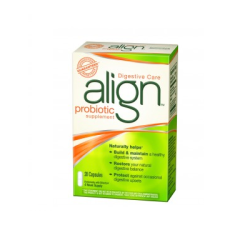 Consumers who purchased Align digestive care probiotic products may be eligible to join a free class action investigation into whether those products were improperly advertised – and if so, what legal claims might arise.
Consumers who purchased Align digestive care probiotic products may be eligible to join a free class action investigation into whether those products were improperly advertised – and if so, what legal claims might arise.
Procter & Gamble began nationwide retail marketing of Align digestive care products in 2009.
According to the plaintiffs in a Procter & Gamble class action lawsuit, the company represents that Align probiotics enhance digestive function and health by supposedly restoring “natural digestive balance.”
The company attributes this result to Bifantis, its proprietary strain of probiotic bacteria that “restore[s] your natural balance and bring[s] peace to your digestive system.”
Probiotics, according to a definition by the World Health Organization, are “[l]ive microorganisms, which, when administered in adequate amounts, confer a health benefit on the host.” Procter & Gamble describes them on its website as “good bacteria that confer a health benefit and are essential for many vital body functions, including healthy digestion.”
Procter & Gamble purportedly assures consumers that its claims about the benefits of Align digestive care are backed up by reliable clinical evidence. Statements quoted from the labeling for Align and from the Procter & Gamble website say that Bifantis “has been the subject of several clinical studies and has been featured in peer-reviewed journals.”
The labeling for Align describes it as “[c]linically proven to naturally defend against 5 signs of digestive imbalance.” The company also claims that Bifantis was developed by gastroenterologists and that “10 years of research went into the formulation of Align.”
But according to the plaintiffs, Procter & Gamble has “no support for these claims.” They say these claims are “false, misleading and reasonably likely to deceive the public.”
Claims of Align Digestive Care Called into Question
Three plaintiffs brought this Align digestive care class action lawsuit, originally filed in 2010. They all allege they bought Align products themselves at various times between 2009 and 2011.
On behalf of themselves and an entire Class of Align purchasers, they allege they were deceived by Procter & Gamble’s claims of digestive health associated with Align.
The plaintiffs cite a June 2006 report by the American Academy of Microbiology, which found “no conclusive evidence that altering the microbiota of a healthy human adult is beneficial.”
On the company’s website for Bifantis, Procter & Gamble purportedly refer to a “clinical trial” studying the use of B. infantis. Plaintiffs point out that in this trial, persons who took B. infantis actually did not report greater relief of symptoms of irritable bowel syndrome.
The plaintiffs also note that the trial studied the effects of this bacteria in persons who already had such symptoms – not in members of the general population to whom Align is now marketed. They further note that Procter & Gamble itself paid for the study.
Even though Procter & Gamble’s website identifies over ten other publications related to B. infantis and probiotics in general, none of them actually substantiates the company’s marketing claims for Align, the plaintiffs say.
The Align digestive care class action lawsuit says that this nationwide marketing by Procter & Gamble runs afoul of several different states’ consumer protection laws.
Join a Free Align Probiotics Class Action Lawsuit Investigation
If you purchased Align probiotics and believe you were deceived by the claims made about Align’s health benefits, you may qualify to join this Align class action lawsuit investigation. It’s absolutely free to participate, so act now!
ATTORNEY ADVERTISING
Top Class Actions is a Proud Member of the American Bar Association
LEGAL INFORMATION IS NOT LEGAL ADVICE
Top Class Actions Legal Statement
©2008 – 2025 Top Class Actions® LLC
Various Trademarks held by their respective owners
This website is not intended for viewing or usage by European Union citizens.














